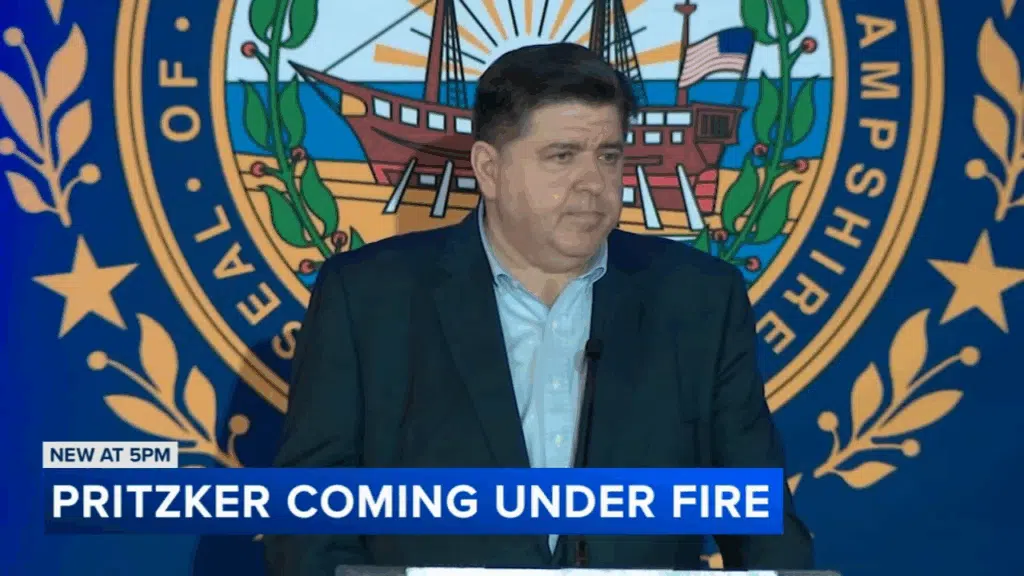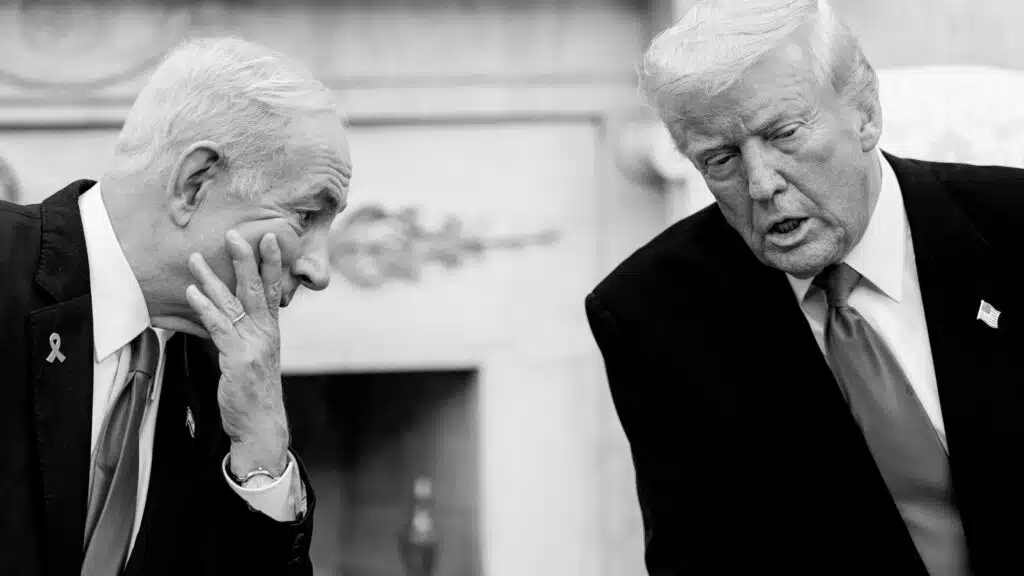
TRUMP & ISRAEL: MAGA, Media, and the Murky Moral Maze
This is one of those posts that includes a pile of screenshots and links that can open up a whole new window of understanding for us.
For all the fury unleashed in the Middle East over the last couple of years, there’s been one curious constant: a widespread reluctance among America First citizens to admit things are not always what they seem, or what an array of conservative voices on electronic screens tell us to think.
The ones who wave certain flags and stand for certain nations the hardest.
The ones who scream “globalist” the loudest while quietly moving in sync with the same military-industrial choreography they claim to resist.
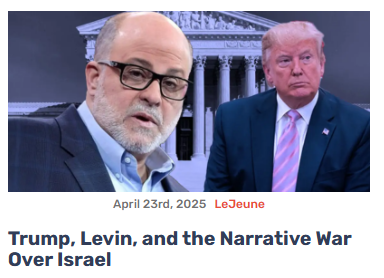
And now, with sources like Forward and NDTV catching on, we see the same dance steps playing out in the open, this time on the rocky stage of the Trump-Netanyahu bromance. The rift between them suddenly is no longer theoretical, but observable.
Spoiler: it’s about as romantic as we’ve been saying it is in this digital space.

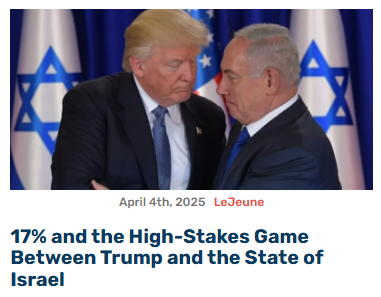
Even Mockingbird‘s NY Times is in on the analysis:
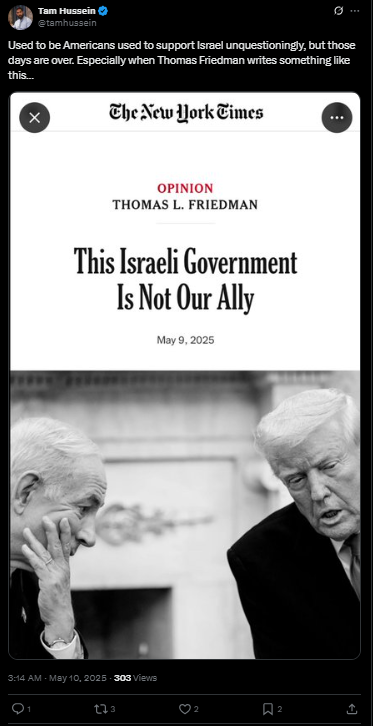
I was also saying it right after October 7, 2023–long before Trump got re-elected, still in the midst of my support of him–and have been ever since:


Does that make me a liberal? But I’ve supported Trump all along, even through the famed Season of DeSantis.
I check all those conservative boxes like gas and egg prices, pro-life, Christian, and transgender madness.
But you just agreed with the NY Times!
Based on the headline, sure, you might think that.
And while it’s a small sample size, it is worth noting because the same phenomenon occurs on bigger accounts: I will alternatively receive accusations of being a “Trump cuck” or a “Trump hating liberal” from folks on opposite sides of the spectrum.
Heck I write a satirical piece that mocks Hillary and appreciates Trump’s tireless efforts—and still have people unsubscribing from The Hayride over it apparently.
By folks who absolutely read every word of the article and not just the Facebook lead-in or comical feature photo, I’m sure.
So what gives?
What gives is the reason I even point out and hot-link my previous work so painstakingly.
First, it’s to scaffold the information delivery like the teacher I am at heart; second, it’s to show that there has been another way of thinking besides mutual exclusivity–the binary trap–all along. From October 2023:
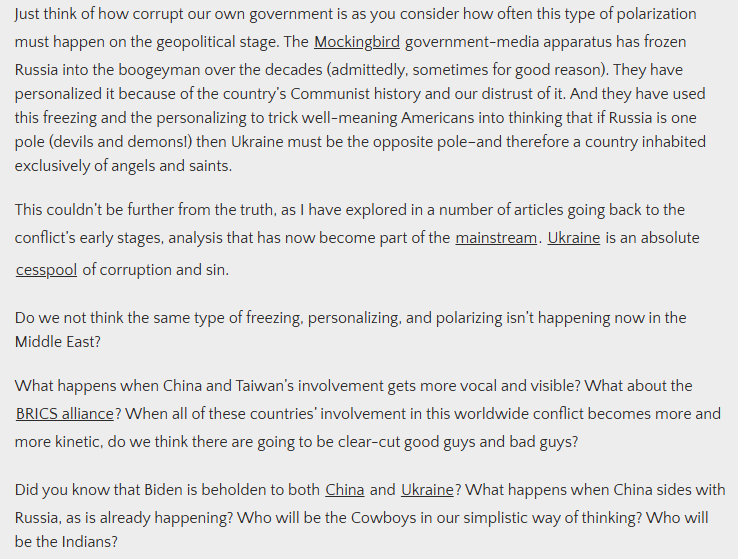
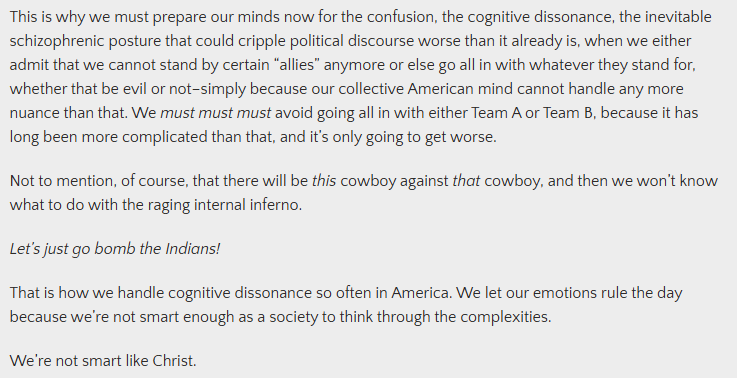

Trump’s Middle East Messaging: Then and Now
Fast forward to 2024 and 2025. We’ve made a point to spotlight that, on Trump’s first visit to the Middle East this term, he decided to skip Israel, instead focusing on relations with Saudi Arabia, a relationship we’ve been spotlighting since last summer. There was always a reason for that, despite the November election not having coming to pass yet, and that reason is now emerging from the shadows.

Did you know this is nothing new for 2025? Did you know he went on a similar tour back in 2017, starting with Saudi Arabia (see black and white photos above)–something we have also been spotlighting in our work? It’s often called the “capitulation tour.” The Vatican was on the docket too. So was the Royal Crown.
And Israel.
Here is a brief five-minute video on that 2017 tour. Warning, it is very positive, and sets Trump up to basically be king of the world–and perhaps makes the “Biden” pause make more sense. I am not necessarily subscribing to such positivity, or the notion that every nation “submitted,” but the fact is that the tour happened, and these images were right there for anyone to see all along.

Now on to the 2025 stop in the Middle East, which was simply a continuation of 2017 and narrative signal to those of us trying to break the trap of the binary all along. You saw some symbolic 2017 callback and 2025 foreshadowing of it Inauguration Night too.
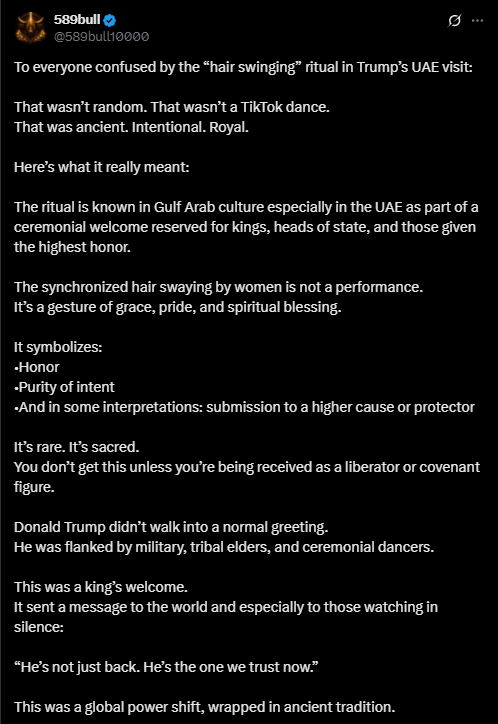
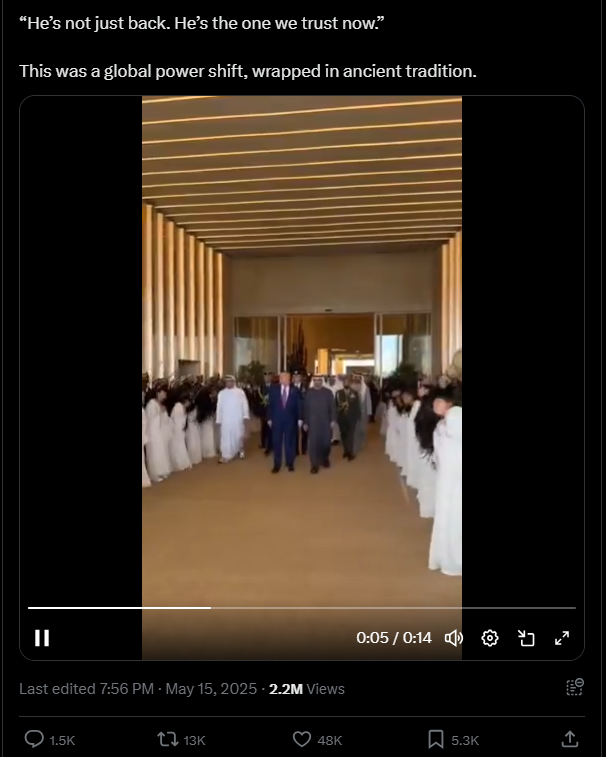
Do I know what all of this means? No, and I’ve always said as much. My approach is to present information–narratives–in this narrative war and invite people to join the battle by thinking beyond bipolarity.
Because when Trump and Israel go their separate ways, what are we going to do with the neatly constructed categories we’ve made for ourselves?
More established voices are taking notice, including Forward:
[Trump’s] first term had delivered a series of triumphs for Israel’s right wing — and, truthfully, much of Israeli society.
He recognized Jerusalem as Israel’s capital and moved the U.S. embassy there, ending the long-running anomaly of countries trying to dictate the location of another nation’s capital. Then came American recognition of Israeli sovereignty over the Golan Heights, a territory captured from Syria in 1967 and formally annexed by Israel in 1981. He oversaw the Abraham Accords, the 2020 normalization deals between Israel and the UAE, Bahrain, and other Middle Eastern countries. These agreements marked a sea change — particularly the UAE deal, which for the first time offered Israelis not just formal recognition but a warm embrace, with no visible concessions demanded in return.
For many on the Israeli right, Trump seemed like a dream president: uninterested in Palestinian statehood, unbothered by human rights critiques, uncritical of West Bank settlements, and largely aligned with their “might makes right” worldview. But those days may be gone….
But, looked at closely, the cracks in that relationship aren’t quite as new as they seem. When Netanyahu made a last-minute April visit to the White House, largely in an attempt to try to talk Trump down from imposing a major new tariff on Israel, Trump appeared to ambush him with the announcement that the United States was resuming nuclear talks with Iran.
Netanyahu sat beside him, visibly stunned. The three rounds of talks that have since been held appear to be leading to an arrangement that sounds a lot like a return to the Iran deal negotiated under former President Barack Obama: Iran would relinquish highly enriched material, continue lower-level enrichment under verification, and receive sanctions relief.
The shocks kept coming. Earlier this week, shortly after a Houthi missile struck the grounds of Israel’s Ben Gurion Airport — causing most airlines to cease flying to Israel — Trump revealed a deal with the Houthis to end U.S.-led strikes targeting the group in Yemen. In exchange, the Houthis would stop attacking ships heading through the Red Sea toward the Suez Canal.
Left out of the deal? Any promise from the Houthis to stop firing at Israel. The timing, two days after the airport incident, left Israelis once again feeling that Trump had thrown them under the bus.
And Trump, while erratic on Gaza, now seems skeptical of the indefinite war Israel appears to envision.
Either the writer is incapable of pattern recognition and true critical observation, or he’s pretending this is all new. The tension they seemingly are letting slip should not at all be mysterious.
Because we’ve been pointing this out for months—years–and I’m just a guy reading and writing what he studies, without a think tank’s payroll.
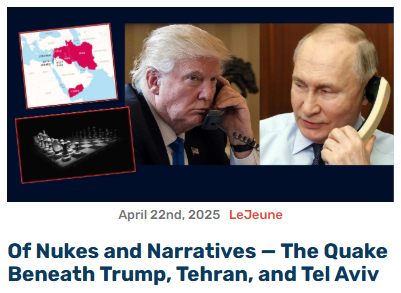
Of course Trump is different this time around–at least outwardly. That doesn’t mean he didn’t have this planned all along.
The Trump Pincer
If we collapse into the binary trap, we will be caught in quite the pincer. What happens when support for Israel suddenly vanishes from the MAGA loyalty card? Do the faithful flinch—or just change the channel? We have been warning against uncompromising loyalties to TV characters and to recent, memory-holed histories created to deceive and profit. All of it has become a logic of turning every Israeli strategic concern into a litmus test for American patriotism.
–Until now, when patriots for Trump are going to have to either really think about what is happening here, or do what too many Americans always do–ignore the parts that create the cognitive dissonance, the parts that don’t add up exactly.
If those two entities split, does that mean we’re no longer patriots?
Trump isn’t on Israel’s side?
Yikes.
I better turn on the LSU game.
Trump’s messaging seems erratic only if you’re following bits and pieces–or–in denial of the jagged morsels. He is actually quite predictable, cold and calculating in his remarks, despite the seemingly volatile, darkly comical tone. And now, his allies in the supposedly conservative media—especially those who built their reputations hailing him as the world’s most pro-Israel leader—are growing uneasy. Something has shifted, has been shifting, which is one reason we’ve put out all that work on “conservative controlled opposition” in the last month or so.
Ukraine, of course, is the other reason.
It’s not just Forward saying all of this. NDTV reports that Trump, in a recent closed-door moment, supposedly warned Israeli officials that if they went too far in Gaza, he would be forced to “abandon” them. Though Trump denied the alleged threat, the media narrative was already seeded—and that was likely the point:
“Trump’s people are letting Israel know, ‘We will abandon you if you do not end this war,'” the source said.
White House Press Secretary Caroline Leavitt also said that “The president wants the war in Gaza to end,” following last week’s surprise release of Israeli-American soldier Edan Alexander, which was secured through direct US-Hamas negotiations without Israel’s involvement.
The report about the Trump administration’s behind-the-scenes pressure followed a very public exclusion of Netanyahu during US President Donald Trump’s Middle East visit last week. During his tour, where he met leaders of Arab nations including Saudi Arabia, Qatar and the United Arab Emirates, Trump said that “a lot of people are starving” in Gaza.
“People are starving. Terrible things are happening there,” Trump said, adding that during a call with Netanyahu in April, he asked him to allow more food and medicine into the enclave. “Gaza came up, and I said we need to be good to Gaza. People there are suffering.”
Here’s where things get interesting.
Because whether Trump made the threat or not doesn’t really matter. The NDTV piece admits that the US official quoted in the original report has walked it back. But what lingers is the narrative tension: Trump is simultaneously playing the hero of the Israeli Right and the unpredictable villain of its more hawkish fringe. Does he want to be loved by everyone—Netanyahu, MAGA, the military brass? Or is he a cold and calculating figure we can’t decide on respecting or fearing–given how prescient and exact he always is with his narrative deployments?
As I’ve said many times before, I am a Trump supporter, but if I wasn’t, him being a moron would hardly be the reason for my disdain. The man is most certainly not that. No, if I suffered from TDS, it would be based on his unbelievable intelligence and foresight.
And I’d be saying that he’s threading a needle so thin it’s bound to catch on the jagged edges of geopolitical realities eventually.
And I’d be saying what happens when that snag turns into a tear?
And I’d be saying how long until American voters start to realize the whole garment has been stitched together with lies?
Your argument, my dear Trump haters, is all wrong. You’re missing out on being a much better source of competition.
But I’m not saying any of those things, because I’m a Trump supporter and have been for a long time.
Some random thoughts:
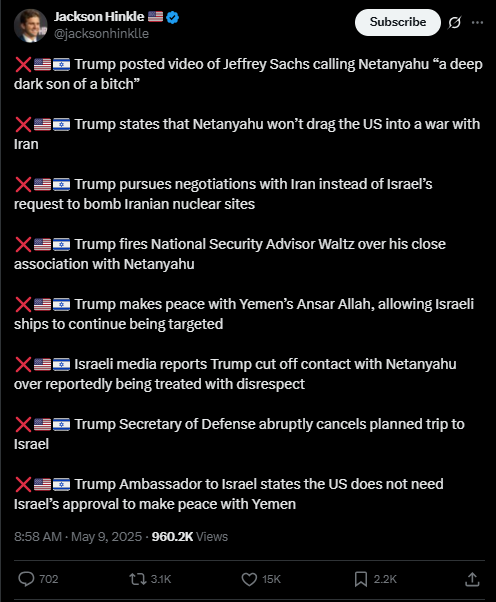
I wonder what Mark Levin, recent addition to Trump’s Homeland Security Advisory Council, is thinking these days:
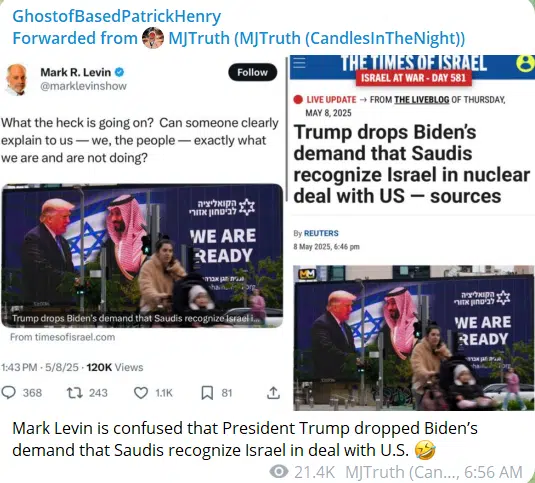
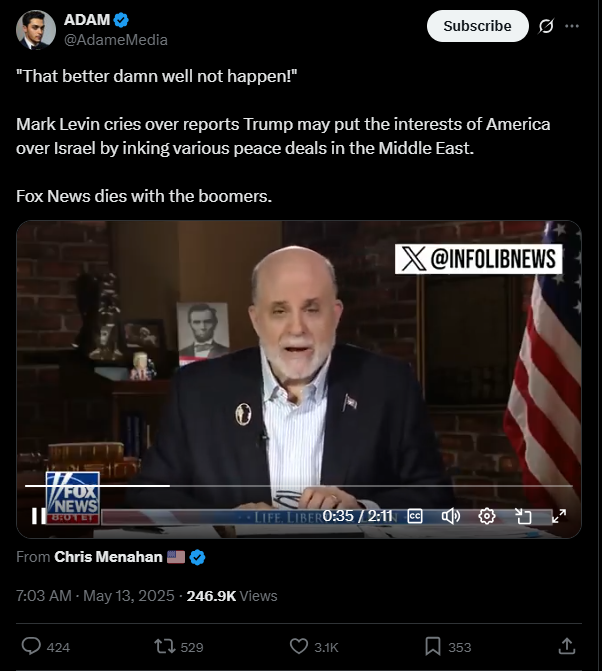
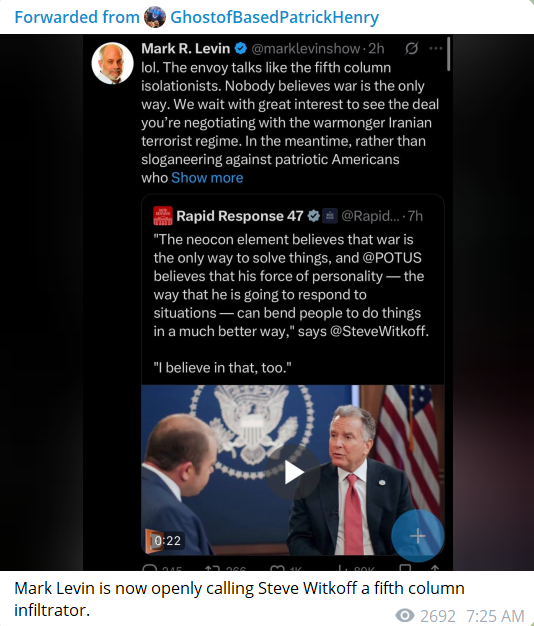
The Trump-Netanyahu dynamic, among other things, has always been a test case for discerning controlled opposition–it along with Ukraine is primarily how I started recognizing it in the first place. Trump’s most loyal and autistic defenders insist he’s playing 4D chess—or is it 5D now?–holding Israel close while secretly resisting its worst instincts. Others, more cynical, suspect he’s merely a creature of his donors, particularly those most invested in Israeli dominance and American entanglement.
Different “conservatives” on the spectrum have said these things. I have taken a more nuanced approach. I don’t have their talking points—or their checks. I’m just a teacher asking (what shouldn’t be by now) uncomfortable questions.
No matter what happens, the controlled opposition theme keeps resurfacing. Because if Trump really is prepared to “abandon” Israel when the moral calculus breaks down, why does he keep surrounding himself with advisors who publicly never do? Why does he allow conservative media to browbeat any dissenting voice into silence with accusations of antisemitism the moment someone questions Israeli policy?
Why, in other words, if we’re going to get all “binary” about it, do so many on the Right still tolerate the muzzle? Why are critical voices still labeled antisemitic the moment they question anything Israel?
Is Trump now going to be called antisemitic, or does his actions now simply mean we have permission to actually hold an autonomous thought about a state that is not even our own?
These are questions no think tank wants to ask—because they’re funded not to. This is not accidental chaos, and leaving that mindset is crucial to taking the next step as a nation. You can’t drain the swamp if you refuse to name the gators.
And it’s a good guess that Trump is forcing us to play that name game for ourselves:
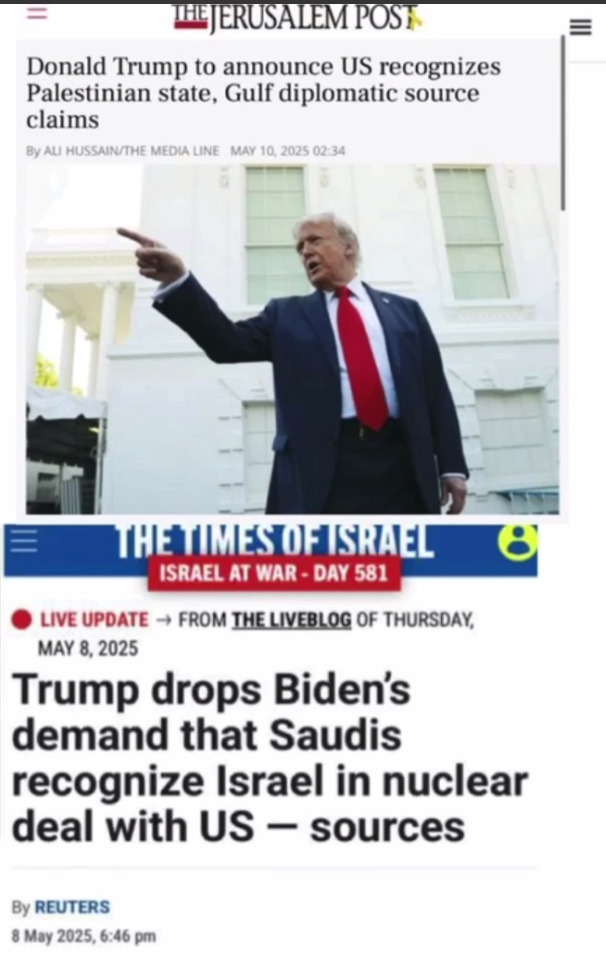
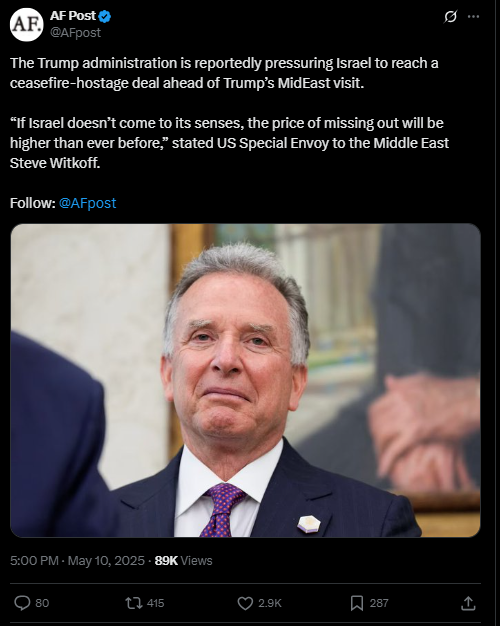
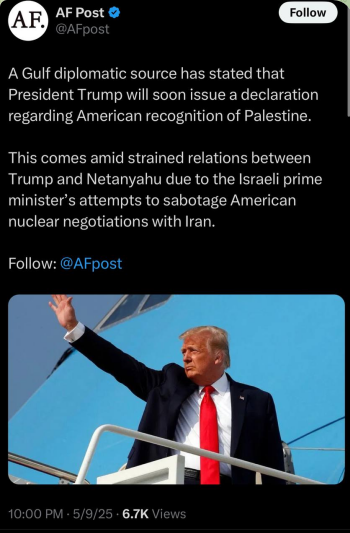

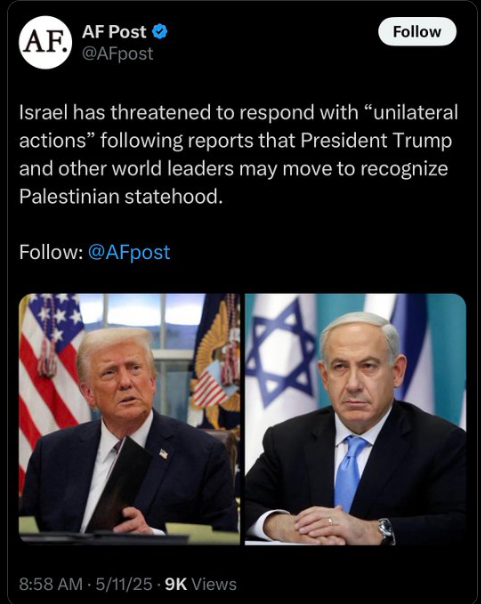

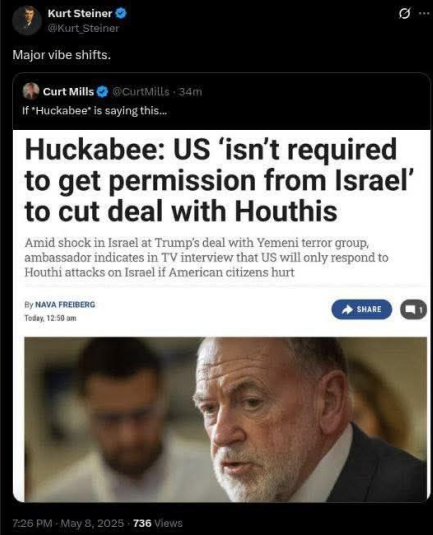
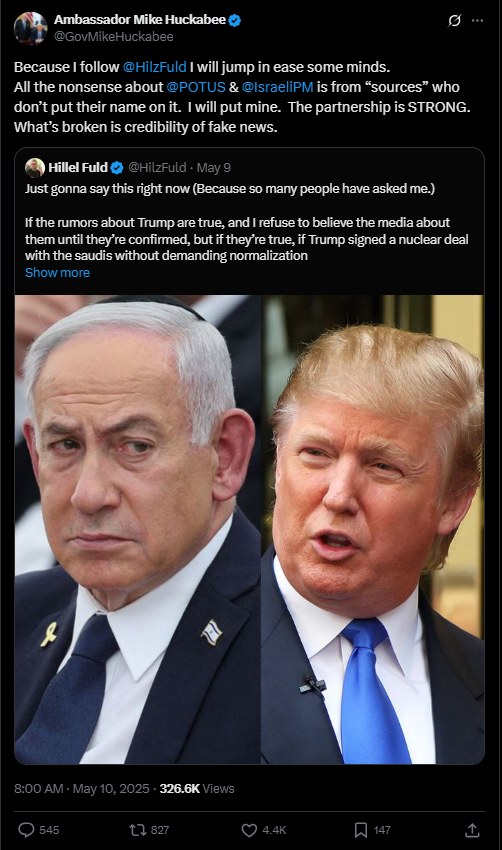
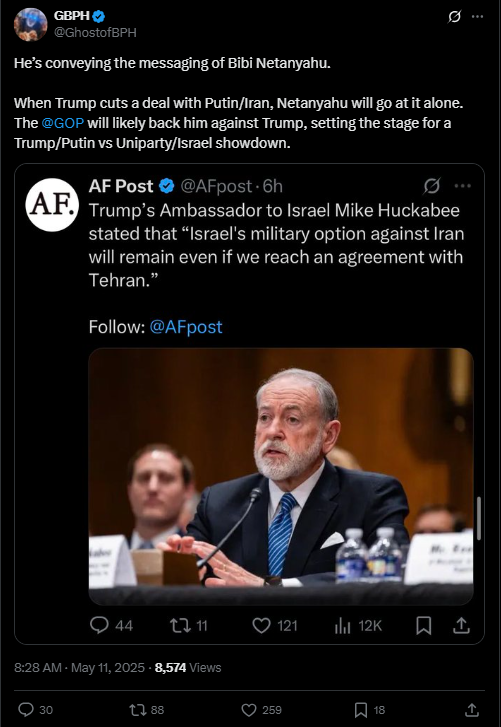
Maybe it’s not a coincidence that Trump’s moment of apparent distance came just as Israeli operations in Gaza are facing more public scrutiny than ever. Maybe it was a trial balloon, as so many of his narrative deployments likely are. Maybe it was a warning. Or maybe—just maybe—it was a man who realizes and has actually long realized that perpetual war on behalf of a foreign nation might not be in America’s best interest–not even conservatives’.
Now there’s a thought.
Final Questions
All of this–words, commentary, Socratic questioning, screenshots, links–is why I have posited that Trump’s narrative deployments cannot be taken at face value, as something he necessarily thinks or believes. That includes things like Gaza, Canada, China, and Greenland. Regardless of what Trump actually believes, or what his vision is, no one can deny his gift for narrative disruption. They are surgical in forcing Americans to actually talk about these things and maybe put the LSU game on record.
Additionally, though, they also spotlight him as someone who maneuvers swimmingly well in non-truth, arguably even in manipulation, which none of us should particularly enjoy, no matter the reasons–even though they are framed as America First.
Moreover, the gatekeepers—those high-powered influencers who rode Trump’s coattails into cultural relevance—won’t touch the topic. They won’t discuss certain angles unless they come with a tidy moral frame. They’ll talk Gaza—but only if it’s about Hamas. They’ll frame the war—but not question the ambition behind it, not to mention the terrorism beyond radical Islam. And they certainly won’t admit that Trump’s bluff—or threat, or comment, or whatever it was—might have been closer to the truth than we’re supposed to know.
Supposed to know.
Certainly don’t expect the Mark Levins or Ben Shapiros of the digital world to say it out loud.
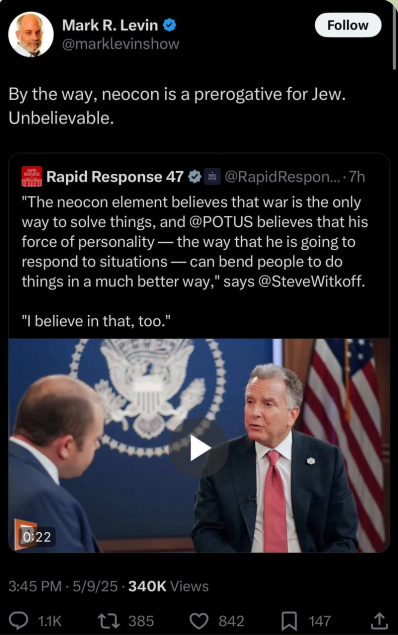
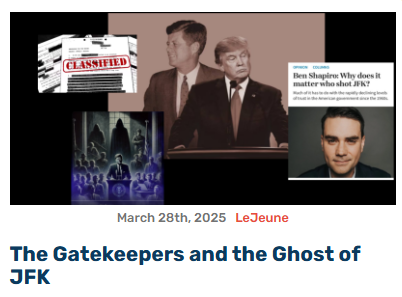
Controlled opposition doesn’t mean silence—it means containment. It means framing the conversation so tightly that any deviation from the script is treated as heresy. It means supporting America First policies everywhere as long as we keep it inside the grocery store or at the gas pump or on the playing field or inside public restrooms. But not in Tel Aviv. Not inside Netanyahu and Co’s war room.
Not inside his handlers’ and their handlers’ cozy mansions.
It means scorning globalism while defending those who are actually perpetuating it. It means calling out George Soros while taking money from AIPAC and other foreign groups.
And it means pretending that Trump is somehow organically changing in all of this, even when the very recognizable pattern in his words and behavior over the years tell another story.
Is it possible he’s changed?
Is it possible he’s waking up?
Is the warning meant for shock value only?
Or maybe it was the same plan, a later chapter in the script, just a new mask for a different audience.
And maybe it’s none of this at all.
That one gets my vote.
The point isn’t to draw a conclusion or to answer any of those questions today.
The point is to have the courage to actually ask them.
Because once you realize how often conservative leaders are allowed to go off-script only when it’s safe, you start to understand how deep the script runs.
Once you recognize the “weaves” in Trump’s words and actions for what they are, you’ll start to understand how very much in control he is.
How very smart and powerful he is.
And that could mean an array of completely different things to Americans on different points of the cognitive spectrum, depending on whether you’re liberal or conservative or watching the game or playing it or studying the script or screaming at CNN or just hopping aboard with a misinformed opinion after watching Fox News.
In the end, the Trump-Netanyahu “rift” might be nothing more than a lovers’ quarrel—loud enough to get the neighbors talking, but never serious enough to prompt a breakup. In a war of narratives, the winner isn’t the one with the cleanest alliance—but the one who controls the plotline the audience follows. And right now, that plotline just veered off script. If Trump is such a lightning rod, and he is, then maybe he’s also a mirror. And maybe what unsettles us most is seeing how split we’ve become–both inside the conservative base and inside ourselves—loyal to truths we haven’t fully examined.
—
May everyone named directly or referenced indirectly ask forgiveness and do penance for their sins against America and God. I fight this information war in the spirit of justice and love for the innocent, but I have been reminded of the need for mercy and prayers for our enemies. I am a sinner in need of redemption as well after all, for my sins are many. In the words of Jesus Christ himself, Lord forgive us all, for we know not what we do.
